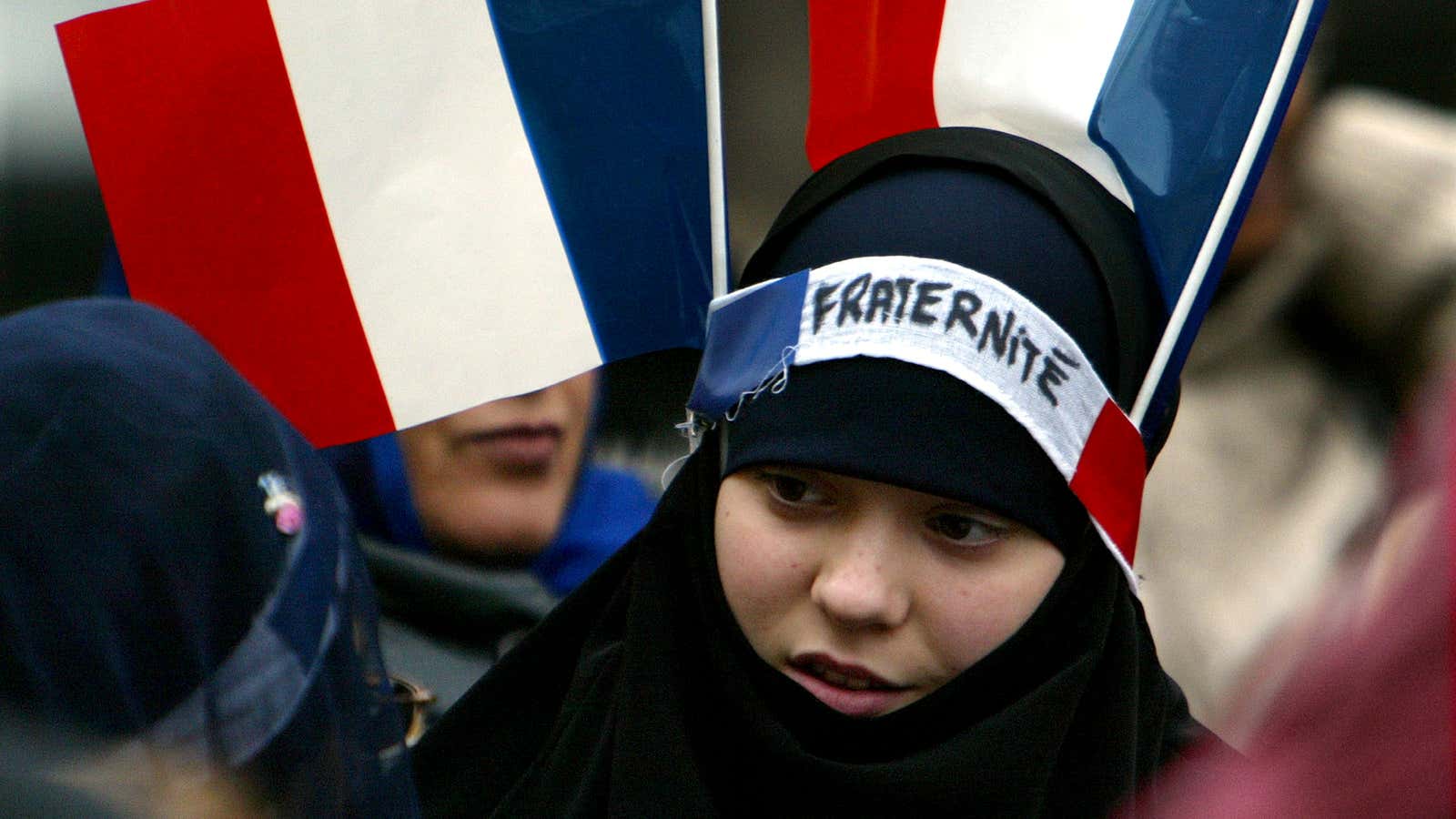Europeans remain fixated on what Muslim women can and cannot wear.
That’s the conclusion of a recent report (pdf) by the Open Society Foundations, an international philanthropic organization founded by George Soros. The report says there are only six countries within the European Union (EU)—Croatia, Cyprus, Greece, Poland, Portugal, and Romania— that haven’t banned Islamic headscarves or face veils in some form or discussed a proposal to do so.
There are currently eight EU member states that have legally enforceable restrictions on religious dress traditionally worn by many Muslim women. Of those six have some form of a national ban on either the headscarf or face veil.
While France, Belgium, Bulgaria, and Austria have all passed more general national laws banning face veils, Denmark and Spain have bans in specific settings or sectors. In Denmark, for example, judges are banned from wearing headscarves or any other religious items. In the vast majority of cases, these laws “do not explicitly target the face veil worn by Muslim women, but are instead framed in general terms,” the report notes.
There are local bans on the headscarf or face veil in five European countries. Another eight are considering legislative proposals.
The report found that even when a country doesn’t have a ban, there were still restrictions set by private companies or institutions, citing 13 EU members. Last year, Europe’s top court ruled that workplace bans on the headscarf are legal.
Many bans were put into place after 9/11. The report names France as “a leader” in adopting restrictions and “shaping much of the discourse.” While the far right has played a major role in introducing and promoting these bans, most often it has been mainstream political parties that actually enacted them.
There has also been strong resistance from human rights groups. The report notes that in 22 countries, proposals to ban the headscarf or face veil were eventually rejected.
